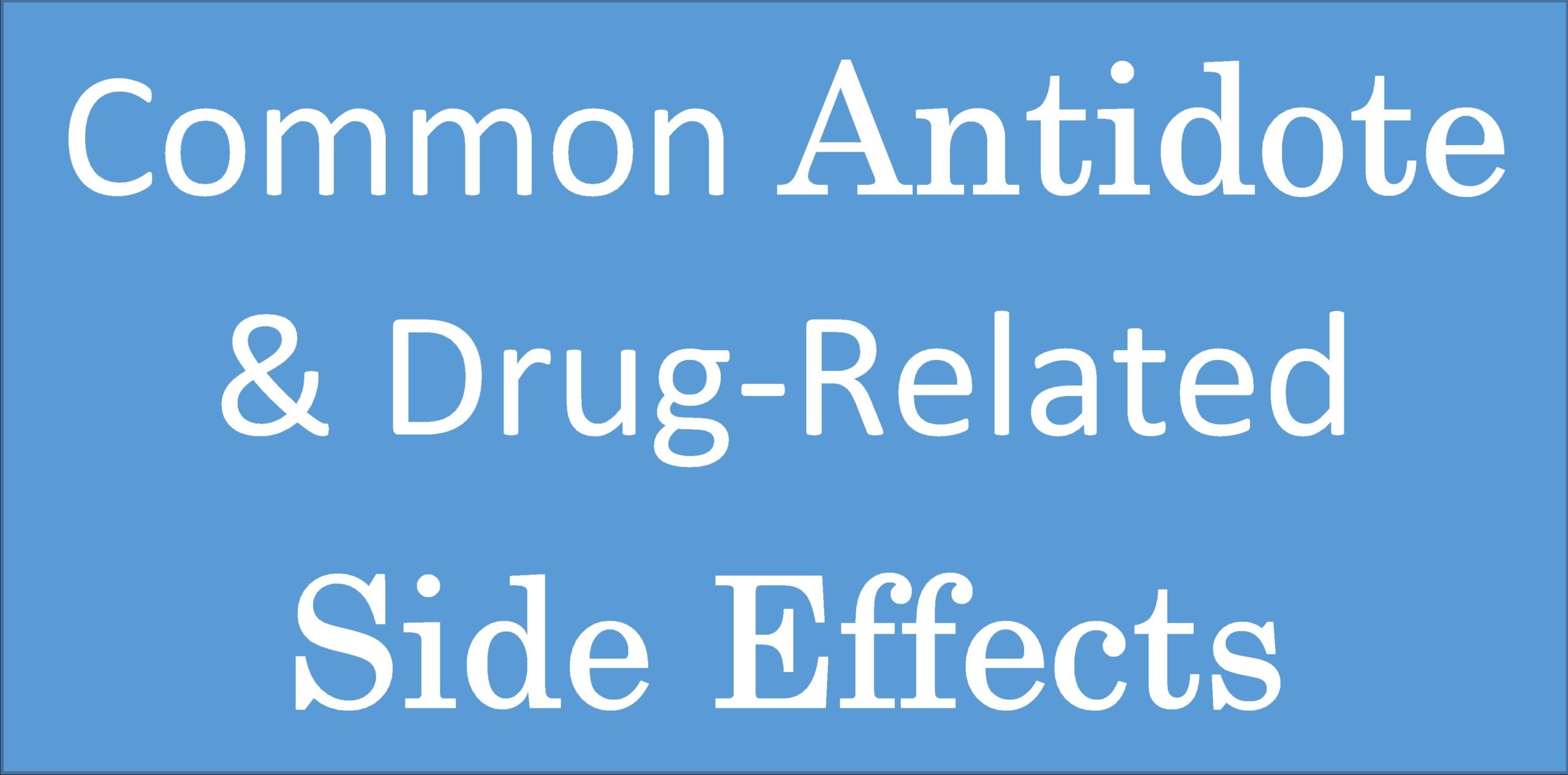Antidote
An antidote is a drug, chelating substance, or a chemical that counteracts (neutralizes) the effects of another drug or a poison.
There are dozens of different antidotes; however, some may only counteract one particular drug, whereas others (such as charcoal) may help reduce the toxicity of numerous drugs. Most antidotes are not 100% effective, and fatalities may still occur even when an antidote has been given. Some examples of antidotes include:
| Toxicity | Antidote |
| Arsenic | Dimercaprol |
| Benzodiazepines | Flumazenil |
| Acetaminophen | N-acetylcysteine |
| Heparin | Protamine Sulfate |
| Warfarin | Vitamin K or Fresh-frozen plasma |
| Tissue Plasminogen Activator | Aminocaproic acid |
| Methotrexate | Leucovarin (Folinic acid) |
| Sodium Nitroprusside | Sodium Thiosulfate |
| β-blockers | Glucagon |
| Carbon Monoxide | 100% Oxygen |
| Opioid | Naloxone, Naltrexone |
| Methanol | Ethanol |
| Organophosphates | Atropine, PAM |
| Iron | Desferoxamine |
| Cyclophosphamide | Mesna |
| Lead | D-penicillamine |
Drug Related Side Effects
Side effects, also known as adverse events, are unwanted or unexpected events or reactions to a drug. Side effects can vary from minor problems like a runny nose to life-threatening events, such as an increased risk of a heart attack.
Several things can affect who does and does not have a side effect when taking a drug – age, gender, allergies, how the body absorbs the drug, other drugs, vitamins and dietary supplements that you may be taking. Common side effects include upset stomach, dry mouth, and drowsiness.
A side effect is considered serious if the result is: death; life-threatening; hospitalization; disability or permanent damage; or exposure prior to conception or during pregnancy caused birth defect.
Side effects can happen when you
- start taking a new drug, dietary supplement, or vitamin/mineral
- stop taking a drug that you’ve been on for a while, or
- when you increase or decrease the amount of a drug that you take.
| Side Effect | Causative Drugs |
| Pulmonary Fibrosis | Bleomycin Amiodarone Busulfan |
| Pseudomembranous Colitis | Clindamycin Ampicillin Amoxicillin |
| Tendonitis | Fluoroquinolones |
| Interstitial Nephritis | NSAIDs Methicillin |
| Cholestatic Jaundice | Macrolides |
| Coronary Vasospasm | Cocaine Sumatriptan |
| Gout | Thiazides |
| Disulfiram-like reactions | Chlorpropamide Metronidazole Cefoxitin Cefamandole |
| Atropine-like reactions | TCAs |
| Cough | ACE Inhibitors |
| Aplastic Anemia | Carbamazepine Chloramphenicol Gold compounds |
| EPS | Antipsychotics |
| Fatal Hepatotoxicity | Halothane Valproic acid Thiazolidinediones Acetaminophen |
| Gray Baby Syndrome | Chloramphenicol |
| Gynecomastia | Cimetidine Spironolactone Alcohol |
| Hand Foot Syndrome | 5-FU |
| Hemolytic anemia w/ G6PD deficiency | Primaquine Dapsone Sulfa drugs Nitrofurantoin Chloramphenicol |
| Hot Flashes | Niacin Tamoxifen |
| Postural Hypotension | α-Blockers |
| Myelosuppression | Alkylating cancer drugs |
| SLE-like reactions | Procainamide Hydralazine Methyldopa |
| Red Man Syndrome | Vancomycin |
| Optic Neuritis | Ethambutol |
| Ototoxicity | Aminoglycosides Loop diuretics |
| Pancreatitis | Didanosine |
| Adrenal Insufficiency | Steroid-withdrawal |
| Thrombocytopenia | Heparin Rifampin |
| Rebound Hypertension | Clonidine-withdrawal α-Methyldopa |
| Severe HTN w/ Tyramine | MAO inhibitors |
| Agranulocytosis | Clozapine |
| Cinchonism | Quinidine |


